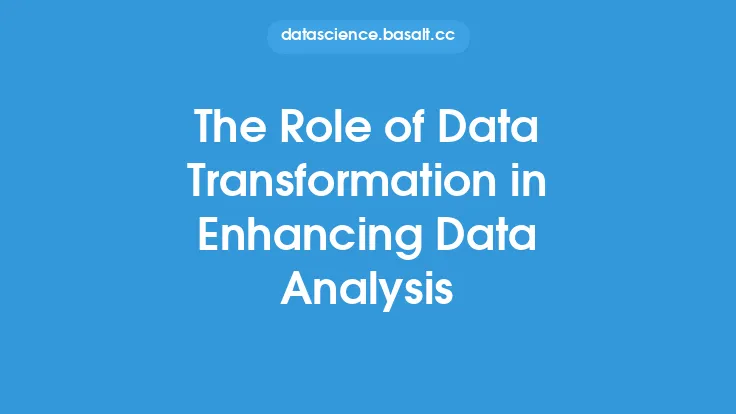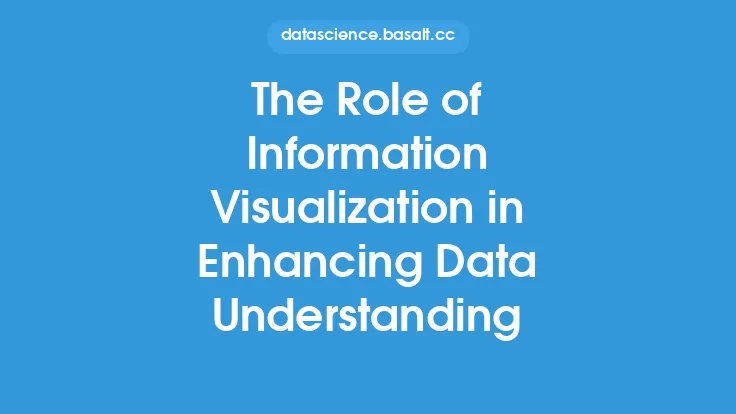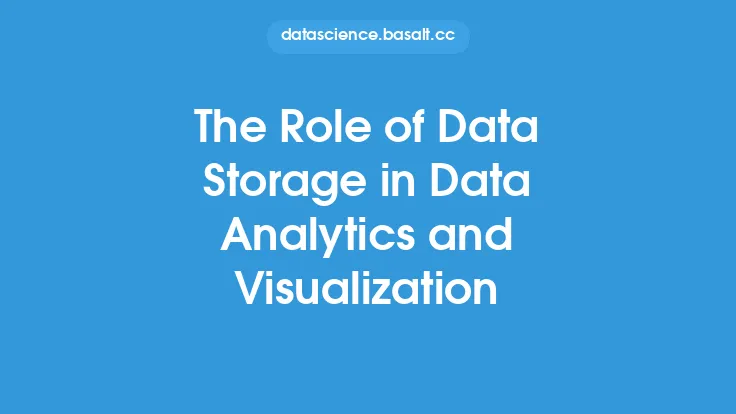The increasing reliance on digital technologies has led to an exponential growth in the amount of data being generated, stored, and transmitted. As a result, the need for robust data security measures has become more pressing than ever. One of the key technologies that has been gaining traction in recent years is artificial intelligence (AI), which has the potential to revolutionize the field of data security. In this article, we will explore the role of AI in enhancing data security, its applications, and the benefits it offers.
Introduction to AI in Data Security
Artificial intelligence refers to the development of computer systems that can perform tasks that typically require human intelligence, such as learning, problem-solving, and decision-making. In the context of data security, AI can be used to analyze vast amounts of data, identify patterns, and detect anomalies that may indicate a security threat. AI-powered systems can also learn from experience and adapt to new threats, making them more effective over time. The use of AI in data security is still a relatively new field, but it has already shown significant promise in enhancing the security and integrity of data.
Applications of AI in Data Security
There are several applications of AI in data security, including:
- Anomaly detection: AI-powered systems can analyze network traffic and system logs to identify patterns that may indicate a security threat. This can help detect and prevent attacks, such as malware and ransomware, before they cause harm.
- Predictive analytics: AI can be used to analyze historical data and predict the likelihood of a security breach. This can help organizations take proactive measures to prevent attacks and reduce the risk of data loss.
- Incident response: AI-powered systems can help respond to security incidents by analyzing data and identifying the root cause of the problem. This can help reduce the time and effort required to respond to incidents and minimize the impact of a breach.
- Compliance monitoring: AI can be used to monitor systems and data for compliance with regulatory requirements, such as GDPR and HIPAA. This can help organizations ensure that they are meeting their compliance obligations and reduce the risk of fines and penalties.
Benefits of AI in Data Security
The use of AI in data security offers several benefits, including:
- Improved detection and response: AI-powered systems can detect and respond to security threats more quickly and effectively than traditional security systems.
- Enhanced analytics: AI can analyze vast amounts of data and provide insights that may not be apparent through traditional analysis methods.
- Increased efficiency: AI-powered systems can automate many security tasks, freeing up staff to focus on more strategic and high-value activities.
- Better decision-making: AI can provide organizations with the insights and data they need to make informed decisions about their security posture and investments.
Technical Aspects of AI in Data Security
From a technical perspective, AI in data security typically involves the use of machine learning algorithms, such as supervised and unsupervised learning, to analyze data and identify patterns. These algorithms can be trained on large datasets, including network traffic, system logs, and threat intelligence feeds. The use of deep learning techniques, such as neural networks, can also be effective in detecting complex patterns and anomalies in data. Additionally, AI-powered systems can be integrated with other security technologies, such as intrusion detection systems and security information and event management (SIEM) systems, to provide a more comprehensive security posture.
Challenges and Limitations of AI in Data Security
While AI has the potential to revolutionize the field of data security, there are also several challenges and limitations that need to be considered. These include:
- Data quality: AI-powered systems require high-quality data to function effectively. Poor data quality can lead to inaccurate results and reduced effectiveness.
- Bias and error: AI systems can be biased or erroneous, leading to false positives or false negatives. This can result in unnecessary resource expenditure or, worse, a failure to detect a real security threat.
- Explainability: AI systems can be difficult to interpret, making it challenging to understand the reasoning behind their decisions. This can make it difficult to trust the results and take appropriate action.
- Security: AI systems can also be vulnerable to security threats, such as adversarial attacks, which can compromise their effectiveness and integrity.
Future of AI in Data Security
The future of AI in data security is exciting and rapidly evolving. As AI technologies continue to advance, we can expect to see even more sophisticated and effective security solutions. Some of the emerging trends in AI-powered data security include:
- Autonomous security: The use of AI to create autonomous security systems that can detect and respond to threats without human intervention.
- Explainable AI: The development of AI systems that can provide transparent and interpretable results, making it easier to trust and understand their decisions.
- Human-AI collaboration: The use of AI to augment human capabilities, rather than replace them, to create more effective and efficient security teams.
- AI-powered security orchestration: The use of AI to automate and orchestrate security workflows, reducing the time and effort required to respond to incidents and improving overall security posture.
Conclusion
In conclusion, AI has the potential to revolutionize the field of data security by providing more effective and efficient security solutions. The use of AI in data security offers several benefits, including improved detection and response, enhanced analytics, increased efficiency, and better decision-making. However, there are also several challenges and limitations that need to be considered, such as data quality, bias and error, explainability, and security. As AI technologies continue to advance, we can expect to see even more sophisticated and effective security solutions, including autonomous security, explainable AI, human-AI collaboration, and AI-powered security orchestration.





